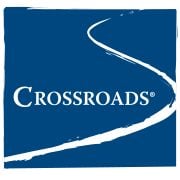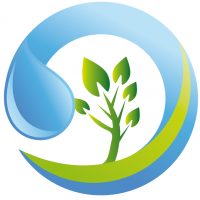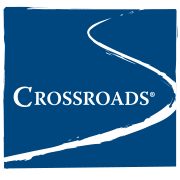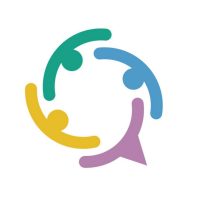Liberty Bay Recovery Center
Drug Rehab Center in Portland, Maine
Liberty Bay Recovery Center provides a range of evidence-based services, from outpatient to residential treatment, for people seeking sobriety in Portland, Maine. They offer specialised support for opioid, substance abuse and drug addiction, and offer aftercare services to ensure individuals are supported in their recovery journey.
About This Portland, ME Facility
Liberty Bay Recovery Center, located in Portland, Maine, is an accredited, state-licensed addiction treatment and mental health organization. Established in 2006, Liberty Bay Recovery offers high quality, evidence-based treatment for individuals suffering from substance use and mental health disorders. The treatment programming combines individual and group therapies, educational lectures, and a unique support system to form one of the most comprehensive and successful treatment plans available.
Liberty Bay Recovery Center provides a variety of services, including detox, inpatient and outpatient programs, cognitive behavioral therapy (CBT), dual diagnosis treatment, individual and group counseling, relapse prevention, medication management, and recovery coaching. The center focuses on an integrative approach for each client, helping individuals through every stage of their journey to recovery with the ultimate goal of helping them achieve long-term sobriety.
Liberty Bay Recovery Center is proud to have received accreditation from The Joint Commission, the gold standard in healthcare, as well as certification from the Substance Abuse and Mental Health Services Administration (SAMHSA). Additionally, the center has received awards from the Maine Association of Substance Abuse Programs for its commitment to excellence in the areas of Substance Abuse, Mental Health and Co-Occurring Disorders Treatment. Liberty Bay Recovery Center is proud to be recognized as a leader in providing comprehensive and comprehensive treatment for addiction and substance abuse.
Genders
Ages
Modality
Additional
Conditions and Issues Treated
Rehab centers exist in Portland, ME to help individuals bounce back from substance abuse, which is an umbrella term for drug and alcohol addiction. Drug addiction refers to the use of illegal drugs and improper use of prescription drugs. Centers like Liberty Bay Recovery Center provide individuals a chance to access individual and group therapy that can be monumental for recovery.
Substance abuse includes all problems that stem out from using various psychoactive substances. It is also a diagnostic term used by Diagnostic and Statistical Manual of Mental Disorders (DSM-IV) to define the mental and physical impairment or distress caused by misuse and overuse of certain substances in a period of 12 months.
Opioid addiction involves addiction to legal or illegal opioids. It may happen very quickly with any opioid use. Sometimes within a matter of days. Opioid addiction is a known as a high-risk factor for future heroin addiction.
Opioid withdrawal can be extremely uncomfortable and lead the user to continue to use even if they want to quit. Stopping using an opioid requires careful medical observation. Sometimes the withdrawal can persist for many weeks, which can put the user at a high risk for relapse.
It is recommended to receive inpatient treatment and a medically supervised detox like those offered at Liberty Bay Recovery Center in Portland, ME, ME, to manage the withdrawal process while learning lasting tools to maintain recovery. In some circumstances medications can be used to manage opioid addiction.
Levels of Care Offered
This center offers a variety of custom treatment tailored to individual recovery. Currently available are Aftercare Support, Detox, Drug Rehab, Inpatient, Intensive Outpatient, Outpatient, Partial-Hospitalization, Residential, with additional therapies available as listed below.
Detox is the first step of rehab. It involves giving a person time to get the toxins out of their body. During detox, the patient gets ill, and they will often start using again to get rid of these unpleasant feelings. That’s why it’s important to have a medical professional at Liberty Bay Recovery Center present. A medical professional will make sure patients don’t start using during detox. They will also likely provide medication to ease their symptoms and coach them through on a mental level.
Inpatient rehab programs like what’s offered at Liberty Bay Recovery Center in Portland, ME are ideal for covering all the bases that surround one’s addiction. It’s considered the most comprehensive approach to care for people afflicted with addiction. Patients live in a facility where they have access to therapy and medical care 24/7.
Intensive outpatient programs are an integral part of the continuum of care for people addicted to drugs and alcohol. Most intensive outpatient programs in Portland, ME comprise a 3-hour session three times a week. Usually, the intensity of these programs diminishes over time. These programs offer a range of services, including counselling, medical treatment, and monitoring alcohol and drug use. The programs are ideal for people who do not need treatment at an inpatient or residential facility and continue to need extended care and support.
Outpatient treatment is treatment that occurs when a patient is not checked into a rehab facility. The patient may show up for therapy sessions, go through detox and engage in other therapies to help them recover. However, they will do so while they live at home in Maine.
Outpatient therapy provided by Liberty Bay Recovery Center is usually recommended as a follow up to inpatient therapy. It helps patients adapt to their normal lives after treatment. In some cases, it can also be an alternative to inpatient treatment. People may choose this route if they are unable to leave their jobs, children or if they don’t have the money for inpatient treatment. However, inpatient treatment is the best way to recover from addiction.
Liberty Bay Recovery Center‘s Partial Hospitalization Program is a midway point between inpatient and outpatient treatment. It is for people who are still struggling with addiction but don’t need round the clock care in Portland. Patients may spend anywhere from 18 to 30 hours a week in a treatment program, but they will sleep at home. The duration of the program can be anywhere from one to six months.
Residential treatment programs are those that offer housing and meals in addition to substance abuse treatment. Rehab facilities that offer residential treatment allow patients to focus solely on recovery, in an environment totally separate from their lives. Some rehab centers specialize in short-term residential treatment (a few days to a week or two), while others solely provide treatment on a long-term basis (several weeks to months). Some offer both, and tailor treatment to the patient’s individual requirements.
Aftercare support involves the support given to a Portland, Maine patient after they complete treatment. It helps them adjust to normal life. It may include setting them up in a halfway house and enrolling them in programs like Narcotics Anonymous (NA) and Alcoholics Anonymous (AA). Liberty Bay Recovery Center‘s patients may also be provided with career training to help them get back into the job force.
Liberty Bay Recovery Center‘s Therapies & Programs
Couples therapy is an approach wherein the patients and their partners are engaged together as a part of the treatment process. When a person becomes a victim of substance abuse, it affects the patient and the people around him, particularly his partner. Their relationship can become strained due to lack of communication, financial issues, loss of trust, lack of intimacy, and physical abuse in more severe cases.
Couples therapy addresses these issues and tries to rebuild the trust between the partners. The partner’s involvement in the process will result in greater chances of treatment success and sustained recovery.
Family therapy is a set of therapeutic approaches that assumes that the entire family is a system. It utilizes the strengths and resources of the family to help the patient refrain from resorting to substance abuse. It helps to repair relationships and improve communication between family members.
Group therapy happens at Liberty Bay Recovery Center in a controlled group environment, as opposed to a one-on-one setting. It supports Portland, ME patients’ recovery by offering a sense of comfort and letting them know that they are not alone. Through shared conversations, patients also learn to develop faith and understanding and gain insight on their addictions.
Unresolved trauma is often a key reason why many patients resorted to substance abuse. Trauma therapy refers to treatment wherein specialist therapists help the patients to resolve the trauma that led the patients to substance abuse. The trauma could be physical abuse, sexual abuse, war, natural disasters, divorce, accident, loss of a loved one, etc. Thinking of these traumatic events causes emotional disturbances like anxiety, depression and results in addiction. If trauma is the primary cause of substance abuse, then both issues must be addressed. Otherwise, there is a risk of relapse. Trauma therapy also improves the cognitive functions and provides long term benefits.
Dialectical Behavior Therapy (DBT) is an improved version of Cognitive Behavioral Therapy (CBT). DBT is a treatment of choice for people suffering from self-harming behaviors characterized by cutting and suicidal thoughts or inclinations.
This treatment is developed to help individuals recognize their thought patterns, behaviors, and feelings. It has demonstrated its effectiveness for people that are finding it difficult to control their emotions and urges. Conditions such as obsessive-compulsive disorder and borderline personality disorder also benefit from DBT as it imparts individuals stress-management techniques and enhanced self-esteem so they can sustain their sobriety by reducing the impact of triggers and out-of-control emotions.
Cognitive behavioral therapy (CBT) is a way of addressing concerns through talking. It can be used in individual counseling sessions. Talking through issues with professionals at Liberty Bay Recovery Center can identify sources of discomfort or unhealthy thoughts. It is a way of learning about yourself and your individual perceptions. CBT is a healthy way of addressing some behaviors which may be bringing unintended consequences in your life.
Rational Emotive Behavior Therapy (REBT) sees a person suffering from substance addiction to have illogical reasoning, counterproductive actions, and does not see things clearly. Due to this, REBT deals with cognition, images, and behavior extensively to rectify the client’s bad habits. REBT pushes an individual to become more reasonable and choose a life without the repercussions of addictions.
Patients at Liberty Bay Recovery Center in Portland, ME learn how to self-soothe by conducting rational self-counseling. REBT provides their patients with the skill sets necessary in handling problems all by themselves, without seeking professional help. The process calls for practice, reiteration, and bolstering the new way of thinking being introduced to the patient.
Contingency management is a way to help motivate someone to remain substance free. It is a process of rewarding positive choices and good outcomes. As humans we are wired to recreate experiences that lead to positive feelings. Through this method incentives are used for completing positive steps towards a sober life. This may be a reward for attending meetings, remaining sober or for employment goals.
Payment Options Accepted
For specific insurance or payment methods please contact us.
Is your insurance accepted?
Ask an expert, call (888) 674-0062
Additional Details
Specifics, location, and helpful extra information.
Portland, Maine 04103 Phone Number(207) 772-9800 Meta DetailsUpdated November 25, 2023
Staff Verified
Patient Reviews
There are no reviews yet. Be the first one to write one.
Portland, Maine Addiction Information
Prescription opioid abuse is the most common form of substance abuse in Maine. More than 10% of these residents have also admitted to using prescription drugs for non-medical purposes. Between 2013 and 2014, 4 out of every 5 deaths in Maine were caused by illicit drugs. One in five high school students in Maine uses marijuana every single month.
More than 5,000 individuals struggling with drug addiction in Portland, Maine. In 2015, 11.5% of people over the age of 12 had used an illicit drug. The most commonly abused drugs in Portland are marijuana, cocaine, and heroin. Drug-related crime costs the Portland community $100 million each year. There are several treatment options available in Portland. The most common type of treatment is inpatient rehab.
Treatment in Nearby Cities
- Springvale, ME (29.2 mi.)
- Anson, ME (80.1 mi.)
- Rumford, ME (62.1 mi.)
- North Berwick, ME (34.2 mi.)
- South Paris, ME (39.5 mi.)
Centers near Liberty Bay Recovery Center
The facility name, logo and brand are the property and registered trademarks of Liberty Bay Recovery Center, and are being used for identification and informational purposes only. Use of these names, logos and brands shall not imply endorsement. RehabNow.org is not affiliated with or sponsored by Liberty Bay Recovery Center.






